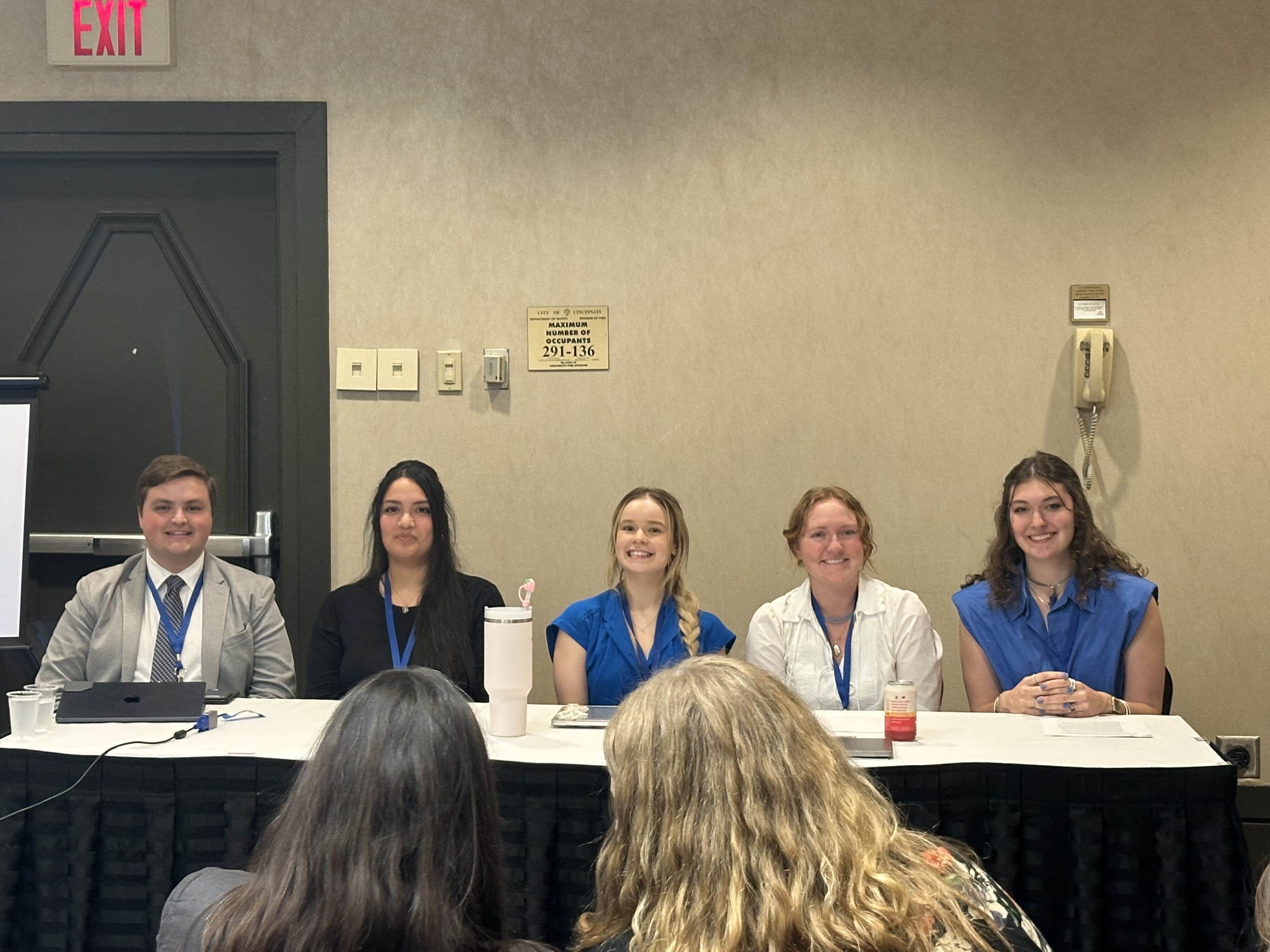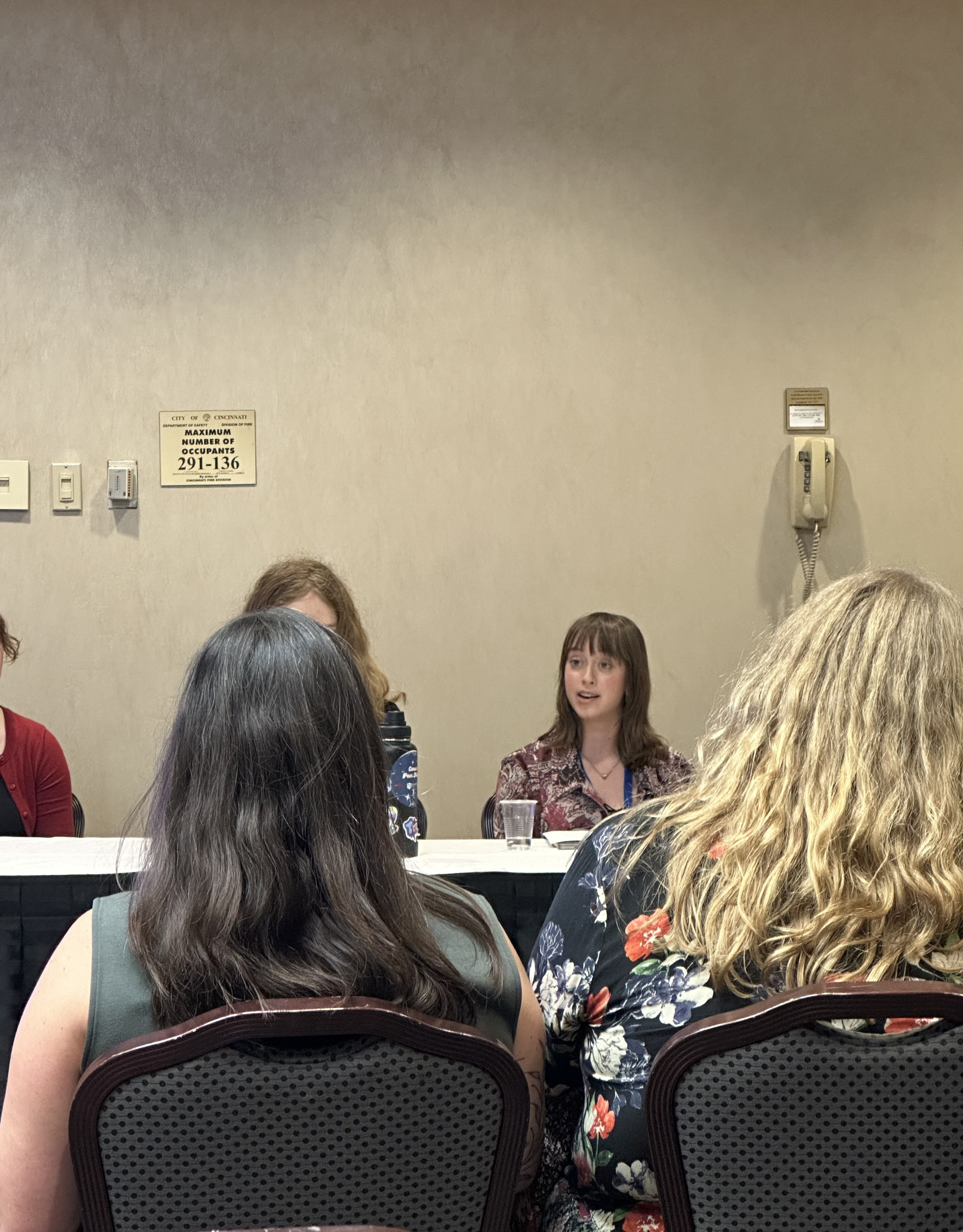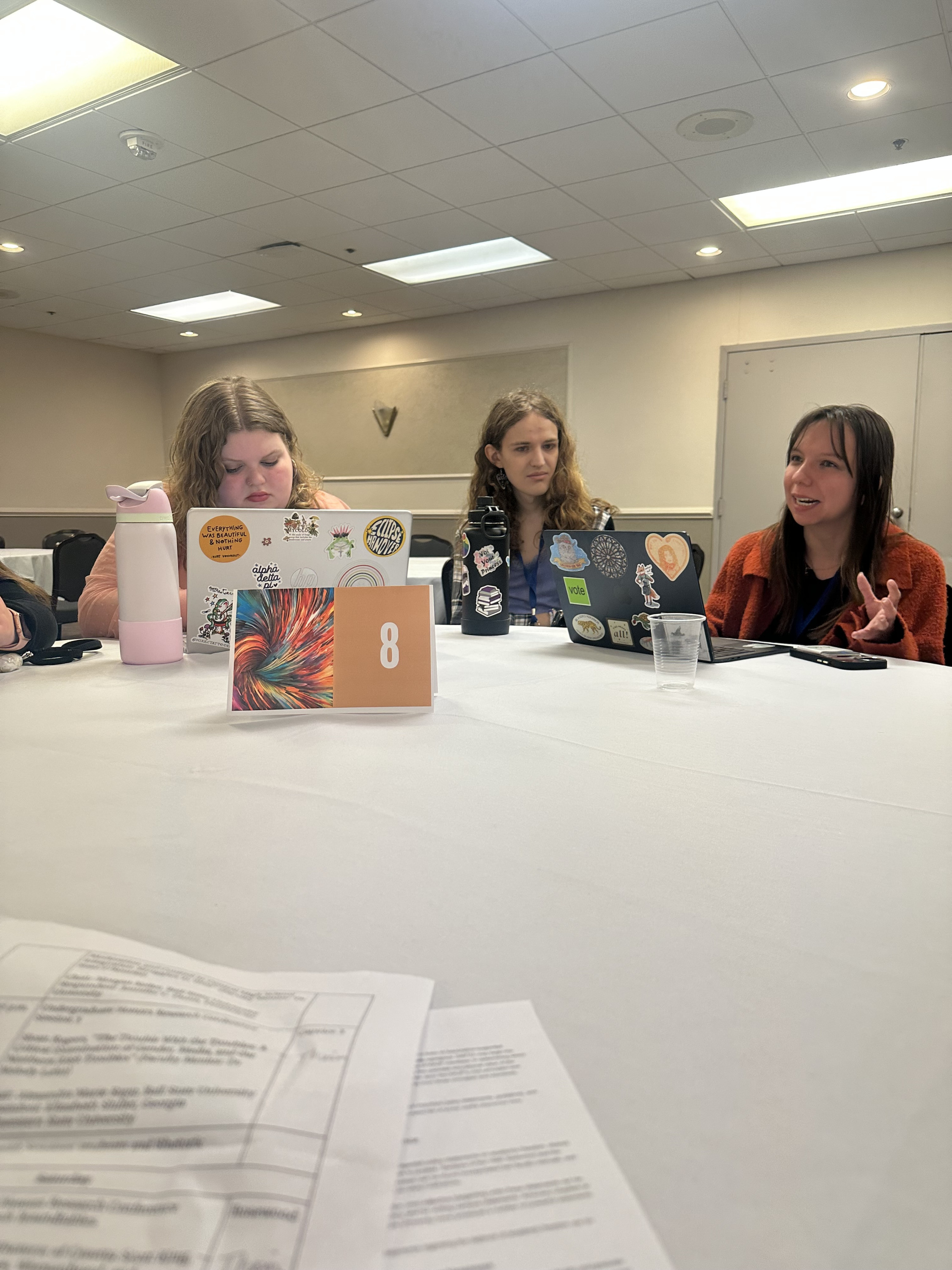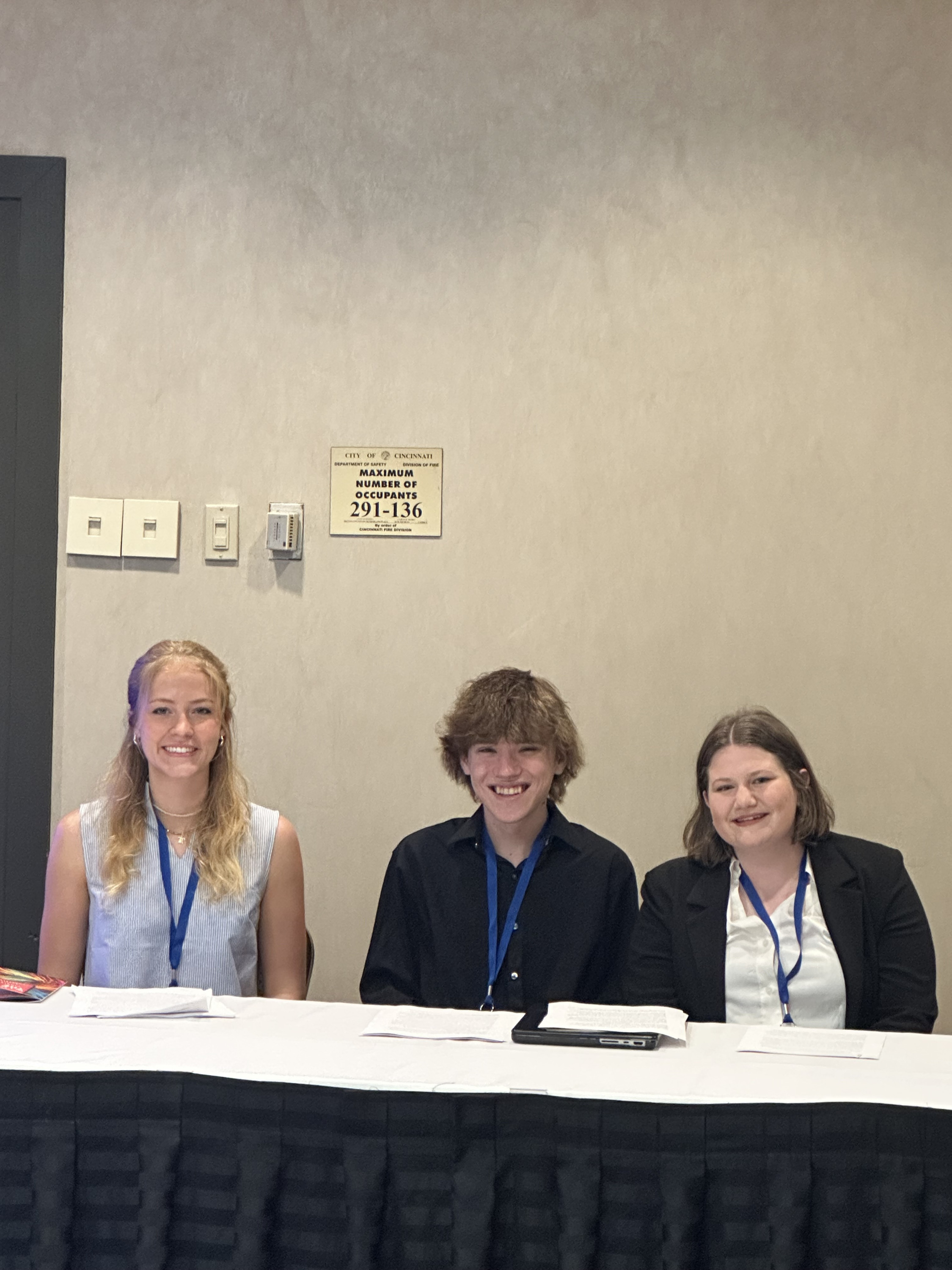Seven Rhetoric students recently presented competitively selected papers at the Undergraduate Honors Research Conference (UHRC) held at the 2025 meeting of the Central States Communication Association (CSCA) in Cincinnati, Ohio. Papers emerged from Dr. Sean O’Rourke’s RHET 411: Rhetoric in the Age of Protest I: 1948-1973 course, and undergraduate theses mentored by O’Rourke and Dr. Melody Lehn, who both accompanied the students. The UHRC offers undergraduate students an opportunity to share their original research projects and provides a forum through which they can inquire about graduate study, meet graduate faculty, and interact with some of the leading scholars in the discipline of communication.
The first undergraduate honors research session featured three Sewanee presenters: Annabel Eppes presented “Guns and Roses: The Rhetorical Use of Flowers in Anti-Vietnam War Protests”; Arthur West presented “Rhetorical Trajectory of Mattachine Society”; and Mary Webster Burke presented “The Power of Pejorative: A Critical Study of the ‘Bitch Manifesto.’” Dr. David Doolittle (University of North Carolina-Chapel Hill) served as the panel respondent, and praised how each paper—though historically situated—has current applications in our complex political and cultural landscape. “This is wild that you wrote such a sophisticated paper as a first year student,” Doolittle told Eppes. He also praised how “increasingly timely” West’s analysis is amid ongoing controversies surrounding DEI programs, initiatives, and work. Finally, Doolittle described Burke’s analysis of the rhetoric of manifestos and feminists’ generic appropriation as “lovely.”
Pictured Left to right: Eppes, West, and Burke
A second panel featured Eliza Dieck’s presentation “The Haunting Iconography of Lynching Photography” and Erin Graffeo’s presentation “The Little Rock Ten, Eleven, and Twelve: A Study of the Rhetorical Strategies of Moderation and Control in Central High School Integration Struggles in 1959.” In her response, Dr. Jennifer C. Dunn (Dominican University) found much to praise in the papers. Dunn had this to say about Dieck’s paper: “I am really excited that you are studying the iconography of photography in general and of lynching in particular. Most important is how you situated the white audience in a passive position that keeps us watching.” For Graffeo, Dunn underscored how deftly she engaged “diverse and multiple sources to understand history.” Two audience members—Dr. Bonnie Jefferson (Boston College) and Dr. Anjana Mudambi (University of Wisconsin-Milwaukee)—both, respectively, remarked during audience Q/A that this was among the “finest” undergraduate panels they had ever attended.

Pictured: Graffeo (right) and Dieck (second from right)
On a third panel, Sloan Rogers presented a portion of her undergraduate honors thesis for her student-initiated major in “Rhetoric and Gender”: “The Trouble with the Troubles: A Critical Examination of Gender, Media, and the Northern Irish Troubles,” directed by Dr. Melody Lehn. When asked about future plans for her paper, Rogers shared the exciting news that she will be matriculating to Trinity College in Dublin next year to pursue graduate work in applied intercultural communication (much applause followed!).

Pictured speaking: Rogers
Jenna Miller rounded out the sessions with a presentation drawn from her undergraduate honors thesis completed for her student-initiated major in Rhetoric and Politics: “The Rhetoric of Coretta Scott King, April-June 1968: Eulogy, Womanhood, and Nonviolence,” completed under the direction of Dr. Sean O'Rourke. Respondent Breanna Prater (University of Missouri) expressed how this thesis is absolutely “solid” and “well-written.”

Pictured speaking: Miller
Congratulations to Annabel, Arthur, Eliza, Erin, Jenna, Mary Webster, and Sloan for their excellent presentations! And many thanks to the generous support provided by the Office of Undergraduate Research. Learn more about undergraduate research in Sewanee's Rhetoric Department, which begins offering a new major in 2025-26.


